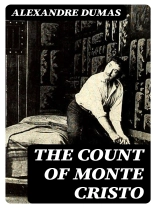In ‘The Count of Monte Cristo, ‘ Alexandre Dumas weaves a masterful tale of betrayal, vengeance, and redemption set against the backdrop of early 19th-century France. The narrative astutely employs a rich, descriptive literary style that combines adventure with intricate character development, reflecting the romantic ideals prevalent in post-Revolutionary Europe. Dumas delves deep into themes of justice, hope, and the consequences of revenge, as he chronicles the metamorphosis of Edmond Dantès from an innocent sailor into the enigmatic Count of Monte Cristo, a character fueled by an unrelenting desire for retribution. Alexandre Dumas, born in 1802, was not only a prolific novelist but also a playwright and a historical figure of mixed heritage, which influenced his perspective on justice and social mobility. His early experiences with betrayal and loss, as well as his fascination with history, played a crucial role in shaping the complex narrative found in this seminal work. Dumas’s unique ability to blend reality with engaging storytelling has established him as a defining figure of the literary canon. ‘The Count of Monte Cristo’ is a timeless exploration of human nature and moral ambiguity, making it essential reading for anyone interested in literature that challenges the boundaries of right and wrong. Readers will find themselves captivated by Dumas’s intricate plotting and unforgettable characters, urging them to reflect on the profound implications of vengeance and mercy.
Sobre el autor
Alexandre Dumas, born on July 24, 1802, in Villers-Cotterêts, France, is renowned for his rich contributions to the literary world, particularly in the adventure genre. Dumas grew up in difficult circumstances, his mixed-race identity and the plight of his nearly impoverished family sharpening his resolve to succeed. Inspired by his father’s military heroism under Napoleon, he moved to Paris in 1822, pursuing a prolific career, initially as a playwright and later transitioning into novels. Dumas’s historical novels embrace a vivid storytelling technique infused with romance and adventure, engaging a broad readership (Schopp, 1997). His magnum opus, ‘The Count of Monte Cristo’ (1844), stands as a classic illustration of Dumas’s narrative prowess, interlacing justice, revenge, and redemption. The novel’s impeccable characterization and explorative thematics of the socio-political atmosphere of his time are testaments to Dumas’s inventive literary style, characterized by fast-paced plots and a romanticized view of history (Reiss, 1996). His works have left an indelible imprint on French literature and continue to be celebrated and adapted across various media platforms worldwide. Alexandre Dumas died on December 5, 1870, but his legacy continues to resonate with authors, critics, and readers alike.












